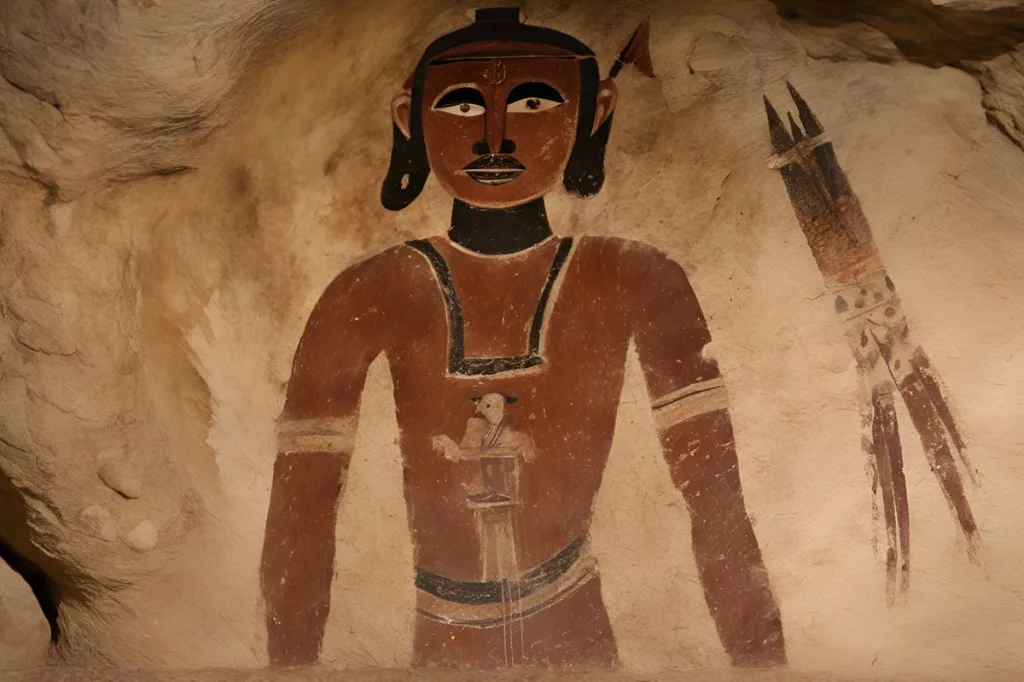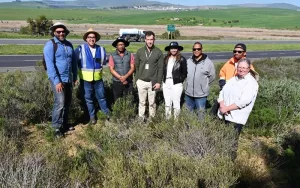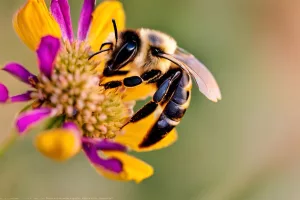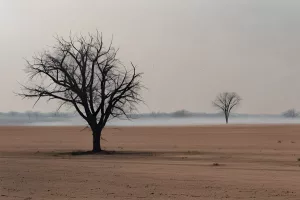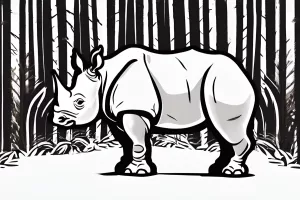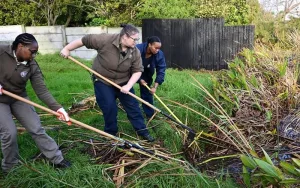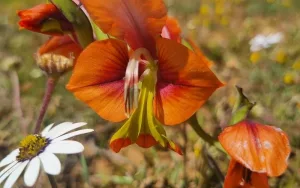Discover the captivating rock art sites of South Africa and immerse yourself in the rich cultural heritage of the San people. From the Drakensberg Mountains to the Baviaanskloof World Heritage Site, each site offers a unique opportunity to connect with our shared human history through the art that narrates the stories, beliefs, and deep kinship of the San people with their natural surroundings. Explore over 35,000 paintings in the Drakensberg, over 2,500 identified sites in the Cederberg Mountains, and witness the interactions between the San people and early African civilizations at Mapungubwe National Park. The Kamberg Nature Reserve, Baviaanskloof World Heritage Site, and Kruger National Park also offer fascinating rock art experiences that bear witness to the San people’s intimate connection with the land and its wildlife.
Mpumalanga province in South Africa boasts of natural wonders, wildlife, and famous landmarks like Kruger National Park and Blyde River Canyon. It also has hidden treasures like the Sudwala Caves, Adam’s Calendar, Three Rondavels, and Barberton Makhonjwa Mountains that showcase the province’s rich geological and human history. These lesserknown sites make Mpumalanga a paradise for scientists, nature enthusiasts, and explorers to discover and appreciate.
The Diep River Catchment Management Forum (DRCMF) is working to improve the health of the Diep River and boost the quality of inland water. The DRCMF has identified key projects and strategies, including the Bayside Canal Upgrade and the Dunoon/Doornbach Stormwater Study, to tackle complex issues affecting the river’s health. The DRCMF’s joint efforts with community engagement are restoring the health of the Diep River and providing a vital part of the city’s ecosystem with a breath of fresh air.
Table Mountain National Park (TMNP) is taking strong steps to keep visitors safe while they enjoy its breathtaking views. Following recent concerns about safety, especially after the tragic loss of a young hiker, SANParks teamed up with local police and the Cape Town community to improve security. Thanks to their combined efforts and the use of new technology, crime in the park has dropped significantly. With a focus on community involvement and advanced safety measures, TMNP aims to protect its beautiful wilderness while making sure everyone can explore it safely.
The Northern Cape in South Africa transforms into a vibrant tapestry of wildflowers every year during August and September, attracting nature lovers and photography enthusiasts from all over. The Namaqua National Park is one of the best places to witness this display, but the region also offers other experiences such as wildlife spotting at the Goegap Nature Reserve, exploring the bulb capital of the world in Nieuwoudtville, and embarking on a rugged adventure at the Oorlogskloof Nature Reserve. Witnessing the bloom is more than just visual, it’s an immersive experience that captivates all your senses.
The Western Cape is facing a potentially turbulent fire season due to excessive rainfall, which has led to an increase in vegetation. This surge in growth has created a significant fire hazard, which will be further intensified by predicted high temperatures and winds. In the previous year, over 9,500 fires ravaged more than 135,000 hectares of land, leading authorities to allocate significant funds to prepare for the inevitable fire season. The region is in the ironic situation of being endangered by its own natural beauty.
Dion George, a prominent figure in South African politics, addressed critical environmental issues at the African Ministerial Conference on the Environment (AMCEN). He emphasized the devastating effects of drought on vulnerable communities, the necessity for a consensus to address drought, and the importance of innovative financial resources to achieve sustainable development goals. He also highlighted the urgent need to address pollution, particularly plastic pollution, and proposed a legally binding instrument tailored to Africa’s unique conditions.
The Eastern Cape in South Africa is struggling with a major ecological crisis caused by rampant veldfires, which are causing harm to the environment and livelihoods of its inhabitants. The crisis is multifaceted and affecting the economic equilibrium, environmental health, and overall prosperity of the province. The Department of Rural Development and Agrarian Reform has proposed adherence to fire hazard assessments and active involvement in Fire Protection Associations, while also initiating projects to promote local production and generate revenue for inhabitants. The province’s administration and population are exhibiting a hopeful and resilient response to the crisis.
The Cape Peninsula Baboon Management Joint Task Team (CPBMJTT) has unveiled a groundbreaking plan to manage the area’s baboon population, including the establishment of the Cape Peninsula Baboon Advisory Group (CPBAG). The CPBAG will advise and facilitate the application of the Cape Peninsula Baboon Strategic Management Plan (CPBSMP) at a local level, ensuring continuous and productive interaction among varying constituencies and building strategic alliances with stakeholders. The objective is to maintain a sustainable Urban Baboon Program that includes local communities, operationalizes the Baboon Strategic Management Plan, and seamlessly transitions into the subsequent phase.
The Society for the Prevention of Cruelty to Animals (SPCA) is a lifesaving organization that protects animals from human atrocities. Bumpy the dog’s story highlights the SPCA’s vital role in providing emergency medical care for poisoned pets. The SPCA serves as an educational body, teaching us how to respond in emergency situations and safeguard our pets. The SPCA and its committed staff, like Dr. Rivona Ramnanan, are unsung heroes in the fight against animal cruelty, and we must take proactive measures to guarantee the safety and health of our pets.
World Ranger Day, celebrated on July 31, is a day to honor the brave men and women who protect and preserve our natural environment. This year’s theme, “30 by 30”, calls for a conservation target of 30% of protected areas by 2030. Rangers play a vital role in this drive towards a sustainable future and are champions of environmental preservation. The celebration is also an opportunity to remember those rangers who have tragically died in the line of duty and to acknowledge the challenges faced by those who continue to protect our natural inheritance.
On World Ranger Day 2024, we celebrate the inspiring women rangers who protect Cape Town’s reserves. These conservation champions have received comprehensive training and provide diverse skills to preserve the environment. From Victoria Day, a reserve supervisor at False Bay Nature Reserve, to Vuyokazi Rubushe, a field ranger at Helderberg Nature Reserve, these women’s journeys highlight the importance of offering equal opportunities and embody the pillars of success: passion, dedication, and a commitment to learning.
Mitigation of Climate Change Disasters in South Africa: A Call for Early Warning Systems
South Africa is among the nations most intensely affected by natural disasters, making the development of early warning systems vital in mitigating the effects of climate change. The Deputy Minister of Forestry, Fisheries and the Environment, Bernice Swarts, stressed the importance of collective adaptation and collaboration during a national workshop orchestrated by the South African Weather Service. The ‘Early Warnings for All’ initiative led by SAWS aims to provide an adequate warning dissemination system that reaches remote areas and vulnerable populations.
Cape Town’s ‘No Mow’ initiative transforms public areas into a vibrant display of spring flowers and indigenous vegetation from August through November. This initiative fosters critical environmental processes and contributes to the larger ecological puzzle by creating resilient networks of varied habitats. It invites a diverse population of fauna, including birds, butterflies, moths, and bees, each adding their unique touch to this vivid scene. The initiative represents a deliberate shift towards greener and more sustainable methods, highlighting the city’s dedication to preserving its local biodiversity.
The operation highlighted the need for better public awareness and responsible waste disposal practices. Everyone has a collective responsibility to preserve the environment, and every effort counts towards a cleaner, greener, and more beautiful Cape Town. Coastal Management Branch, along with Shark Spotters and Coastal Conservation, cleaned up Bantry Bay’s caves resulting in an impressive total of 2,356 municipal bags of debris. The operation was initiated on August 19th and lasted four days. The cleanup highlighted the need for improved public awareness and responsible waste disposal practices. Ultimately, it’s on us, and every effort contributed takes us one step closer to a cleaner, greener, and more beautiful Cape Town.
Cape Town has won the national title for the World Wildlife Fund One Planet City Challenge (OPCC) twice, showcasing its commitment to sustainable urban development and renewable energy. The OPCC challenges cities globally to set climate goals aligned with the Paris Agreement’s objective of limiting global temperature increase to 1.5 °C. Cape Town’s strategies include condensed urbanization, transport electrification, and a balanced integration of adaptive actions, mitigation initiatives, and the United Nations’ Sustainable Development Goals, setting a worldwide exemplar for a future where urbanization coexists with sustainability. This triumph serves as a beacon of hope for cities across the globe.

